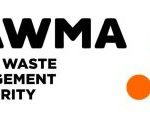
The Vice-Chairman/Chief Executive Officer of the Federal Competition and Consumer Protection Commission, Babatunde Irukera, discusses with EMMANUEL OJO the recent hike in prices of goods and services, inflationary trends and what the commission is doing to keep the trend in check
Following the recent inflationary trends, there has been a geometric rise in the Consumer Price Index in Nigeria. What is the cause of this hike?
Inflationary trends are attributable to multiple factors and talking about Consumer Price Index, it primarily relates to food and other fast-moving consumer goods sectors. Looking at a place like Nigeria, there are expected associated outcomes concerning the removal of fuel subsidy and the unification of the Forex windows. These, in the long-term economy, are important decisions. So, the rise in prices of goods and services that we see is because of that.
However, there are other factors, especially concerning the price of food. Prices are going up globally; in the United Kingdom. Many parts of Europe and the United States, all of them are experiencing higher prices of food, and in a developing country like Nigeria, it can be attributable to many factors. The disruption in the supply chain; for example, in the global supply chain, there are disruptions and there are potential problems associated with them.
Secondly is the conflict going on around the world; for instance, today, it is known that Russia has terminated what is called major mutual deals and some Western countries have condemned that. So, there are war conflicts, monetary policies, climate change globally and decreasing supply. The demand for food is not likely to go down and the black market will call for higher prices.
What factors are peculiar to Nigeria?
In a place like Nigeria, there is an additional factor, which is the place where regulators may focus and play a role and that is a potential for things like price gouging or prices that are artificially high. In a case like Nigeria, those are areas that require significant regulatory scrutiny. I admit that competition regulations in Nigeria are relatively low and our economy has matured in a manner before we introduced competition regulation. So, the task at hand is to unlock that. For example, the market women traders association, fertilizer producers association, even farmers association and the commodities traders; all of these groups potentially disrupt the market. For instance, the barbers association, vulcanizers associations, and PoS (Point of Sale) associations uniformly fix or determine prices. Those are factors that generally affect the prices. Every competitor should be allowed to determine his price individually.
A competitive market is a competition both ways; this means that sellers are competing with other sellers to sell to buyers and buyers are competing to buy from sellers. The buyers will compete to buy from the seller whose price presents them with the best option and sellers too should tag a price to make buyers to be more interested in their product. Anything that distorts that market makes any price, no matter what the price is, not likely to be the fairest price. So, when the competitors come together and they form an association that will determine their price, that is a distorted market because the input costs of these competitors are not the same, their models are not the same, and even their expected satisfactory margins are not the same.
So, each person should price their products based on their expected margin and their input cost but when you have an association that can peg price, you eliminate competition and those who would have sold for cheaper, you would not let them sell for cheaper and those who would have engaged the customers with innovation that would have improved their marketability don’t need to because there are no efforts in that regard that are required.
For those that do that at the association level, either in transportation across the country or those who buy and hoard, those are the areas that need to be unlocked but many times, some of the people who are altering the value chain are the common men. Therefore, it’s almost the vulnerable exploiting the vulnerable. Even when it’s a vulnerable person exploiting others, what we do is to help the will and the stamina to unlock the chain of exploitation and that will address some of the excessive crises.
According to the Federal Competition and Consumers Protection Act of 2018, the commission has the mandate to protect the welfare of consumers. What’s the commission doing to protect the welfare of consumers in Nigeria at this critical time to avoid excessive hikes in prices?
We do not regulate prices; we regulate the market to work well. When the market works well, prices will be fair and we are doing several things. For instance, concerning price gouging, when we found evidence of price gouging in the past, we prosecuted. We set out and prosecuted several supermarkets and pharmacies during COVID when we found any unjust pricing with certain commodities which is important to addressing COVID. It’s slightly different when it is not a pandemic. So, what we are doing is enforcement on the one hand and advocacy on the other hand.
As I said, some of the products that are going on account of it are for vulnerable people too. The right approach is to start with advocacy and try to get people to understand these things to unlock those cases. When advocacy does not help out, then you can go to the enforcement regime where there will be penalties. A good example is our engagement with the PoS operators. You probably understand that most people who operate PoS are vulnerable people, who are using it in creating jobs and all of that for those who don’t have jobs and they don’t make much money but they came together as an association. Instead of effecting the prices of the ranges of their services, we immediately published an advisory, rejecting that and prohibiting that conduct. We have done that in the past with airline operators.
We understand that the operators’ association has insisted that they will continue with these conducts and if they proceed, they will no longer tell whether they are vulnerable or not because they are extorting a larger sector of society, we will proceed with strong enforcement.
Talking about regulations, all sectors of the economy are expected to have their regulatory bodies but some of these regulatory bodies stay silent at times when they are required to issue statements or warnings. For instance, power distribution companies proposed to increase the price of power units recently but the Nigerian Electricity Regulatory Commission which was supposed to issue the official statement was mute about it. Can it be said that we have weak regulatory commissions or what’s the right approach to such?
There is a tariff-setting methodology in the law that is regulated by NERC and as such, it is unlikely, that any particular distribution company can fix per unit price by itself, even some of the carve-outs, with unit agreements, having willing buyers and willing sellers are not without some regulatory support or authority to do it. As I said, there are willing buyers and willing sellers. So, it’s not an imposition. That said, at FCCPC, we still strongly believe that the energy market is still not efficient and is exploitative but at minimum, the estimated billing system is down in almost all circumstances to the exploitation of consumers, and in most cases, they make more profit.
For us in the electricity sector, our main focus stands by encouraging and insisting on two things, aggressive metering to close the metering gap and then, secondly, working with the NERC for aggressive enforcement of estimated billing cap regulation because it’s only when estimated billing is not profitable that the Discos will become more incentivised to address the metering gap. If we succeed, stronger enforcement that penalises these Discos from estimated bills that can be beneficial to them will do.
Just like you partly pointed out, can it be summed up that the metering gap is intentional and the Discos are making it not readily available in their bid to exploit consumers?
You are correct and that’s the point I laid by saying that one can incentivise the Discos to readily provide these meters and to make sure that they can’t get away with the estimated billing money in their pockets because they have all kinds of excuses like meter manufacturing, importing capacity, electric capacity. They are still not ready for metering and that’s because it’s not costing them anything. If you start to have penalties, they will be far more productive in discharging their duties.
Talking about the banking sector, is there a regulation to bank charges as you see different banks give different rates for their charges.
The Central Bank publishes what is known as the Guide to Bank Charges. They have a question about that but that’s the prevailing framework. So, bank charges are by the guide to bank charges. The Central Bank is the credential regulation of financial institutions and because we do not have that expertise, we refer to that primarily, although, as I said, we would prefer banks to determine their charges independently of each other so that consumers can determine where they want to be; whether they want to bank with them or not. However, the jurisdiction of the FCCPC in banking is somewhat limited by the provision of Banks and Other Financial Institution Acts 2020. So, it’s not so simple, it’s quite complex in regulating the banking industry.
There also seems to be little or no regulation in housing sectors and housing is basic welfare that everyone needs, especially in major cities like Lagos, Abuja, and Port Harcourt. The cost of housing is gradually becoming unbearable for residents as landlords increase the rents at will. Is there any provision for regulation in this sector?
Landlords and tenants typically are regulated at the state level. For instance, in Lagos, there is a landlord and tenant law that even prohibits landlords from taking more than a certain number of months or a year for rent, and because contracts principle in the land are usually very bilateral but typically from a rent standpoint, not ordinarily a product that is offered to the market consumers generally. So, there are very limited circumstances as to what the FCCPC can do to that market. For instance, with respect to (estate) developers who make offers to the public about property sale, construction and all of that, we do absolutely get involved but there are limitations.
Does the law also give a guide to the regulation of rent?
It does not specifically identify it; however, it does make provisions with respect to manifestly unjust prices of goods or services. The dilemma though is that it’s not the mandate of FCCPC to control prices and to impose prices. It’s still a free market. So, the black letter of the law is modified by the intent of the law, the overall structure of the market and the fact that democracy is actually a free market.
How can you define or describe a ‘manifestly unjust price’ as you mentioned?
The law doesn’t provide the commission with an unfettered discretion to just determine because in any case, a judicial scrutiny of the exercise of any power must also be judicious. While it may seem subjective to determine whether something is too high or too low, what the law requires us to do, we have done and it is to actually have certain objective standards for assessment. For instance, if N1m is a prevailing average in a certain market or for a certain product for a region and a supplier of that product or service requires N1m, even if in the prior year, that supplier demanded only half a million naira, the fact is that they are demanding the market accepted price. So, it will be difficult to determine whether their conduct is excessive.
Do you think housing should have better and proper regulation in Nigeria?
I think the government in various states should issue what is called a rent bill or rent law that will regulate issues about housing but I don’t think they should necessarily choose what rents should be because that is again inconsistent with the same margin but again, some guidance should be to prevent exploitative conducts.
There is no way it can be at the federal level, For instance, imagine you want to stay in Lagos and compare it to what applies in other states like Yobe and the rest, it won’t work. I think not all states experience things as difficult as it may be. Even at the state level, there is a need to regulate and manage in a way that reflects what the priorities are. So, the states will determine what their priorities are. For instance, some of the states have not been able to embrace regulation in this area because there is no problem there.
Going by the inflation rates in Nigeria and the Nigeria Labour Congress proposing a salary structure with a minimum wage of N200,000. What effect do you think that would have on the economy?
Well, the supply of money or the interaction between money supply and inflationary trend. I am actually a lawyer and a consumer protection regulator. So, I do not have the expertise to proffer any professional opinion on that but from a general knowledge standpoint, I know that the more money that is available, the more spending that occurs. Once the supply of goods doesn’t match the demand, it will definitely lead to increased prices. Is that an argument against increasing the minimum wage? Absolutely not because increasing wages is more of making sure that people are more fairly paid and they have a reasonable income to afford basic life. To that extent, the Labour and the government bodies are in better positions to identify what to unlock for a better living.











